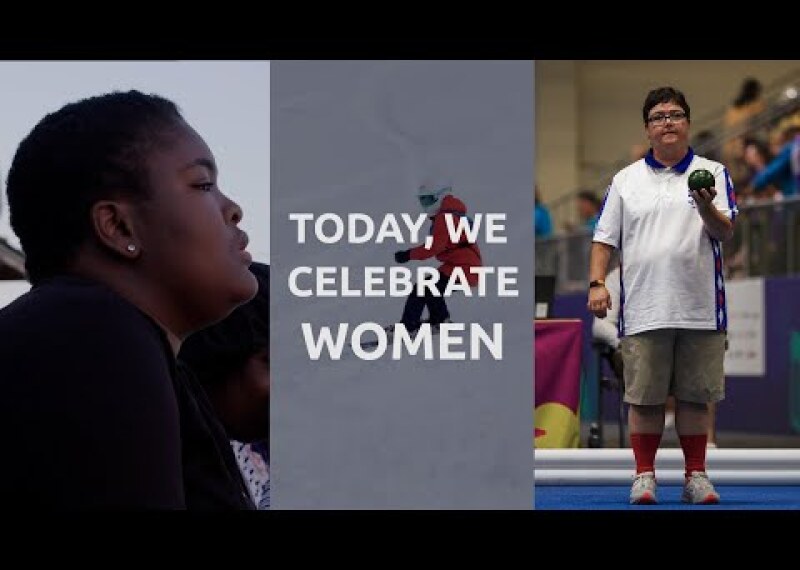
This interview is available in both English and Mandarin below.
Coach Jiang Jianqiang – 中国广东省特殊教育学校
来自中国广东省的姜建强教练讲述了他在自己工作的特殊教育学校发展体育教育和运动的历程。
1. 你为什么决定成为一名教练/特教老师?
我没有刻意的去做这个决定,只是觉得特教老师的职业是一个不平常的挑战,然后就选择了。
2. 你为什么要成为一名特教老师/执教你所从事的运动?你喜欢这项工作/运动的什么?
我想要带领一个个特殊孩子站到更多、更大、更宽的舞台,于是就坚定的成为一名特教老师,入职后先后带领我的学生做田径、足球、旱地冰壶、轮滑运动,我非常享受这项工作,我会在不同的体育项目中带领学生认识这个世界,这也是我喜欢这项工作的原因。
3. 您每周指导您的学生/团队/运动员多少次?
现在每天会带着学生从事轮滑运动,每次大概1个小时,每周4次左右。
4. 为什么体育对你和你执教的运动员很重要?
体育是实现他们成为完全人格的重要桥梁,也是实现每一个人自我挑战的利剑。所以,我认为体育对学生们特别重要。
5. 做为一名教练,在特奥的活动中,你对自己有什么了解?
最大的理解就是对平等、尊重和包容有了更深层次的理解,并学会处理好各种关系。
6. 您能否举例说明您的学生/运动员的社交和情绪健康(自信、社会包容、压力管理)如何因您的训练而得到改善?
学生阿锋从小是一个性格内向、不愿意与旁人交流、说话小声的孩子,他热爱足球、篮球等体育运动。在多年的体育训练中,我们刻意要求他大声的呼喊、勇敢的碰撞、积极的争抢,经过无数次比赛,他获得了自信,充满了阳刚之气,成为了学校耀眼的明星。
7. 你是如何在运动场外支持你的学生/队员融入和促进社会包容的?
给他们掌声、与他们击掌鼓励,不在乎比赛的结果、只要求他们能争取每一次的努力,这个是最关键的。
8. 请描述你是如何支持你的学生/运动员在训练内外遵循健康和积极的生活方式的?
养成良好的训练习惯(着装要求、练习严谨),并把这些良好的习惯带到生活中去。
9. 在你的执教生涯中,你的执教理念发生了怎样的变化?或者从你开始参与特奥活动以来?
刚开始可能在乎的是学生的进步、成绩的优秀、外界的评判,后来发现,把更多学生带出户外、带到运动场、奔跑在阳光下才是最有意义的事。
————
Coach Jiang Jianqiang – Special Education School in Guangdong Province, China
Coach Jiang Jianqiang talks about his journey to grow physical education and sport at the special education school he works at in Guangdong Province, China.
1. Why did you decide you wanted to be a coach?
I did not deliberately make this decision, but I felt that the career of a special education teacher was an unusual challenge, and I chose it.
2. Why do you coach the sport that you do? What do you like about this sport?
I wanted to lead special children to stand on bigger and better stages, so I became a special education teacher. After joining the school, I led my students to do track and field, football, roller curling and roller skating. I enjoyed this job very much, and I want to lead students to know the world has all different sports; this is why I love my job.
3. How many times per week do you coach your team/athlete?
I currently take my students to roller skating for about 1 hour every day which is about 4 times a week.
4. Why is sport important to you and the athletes you coach?
Sport is an important bridge for athletes to realize their complete personality, and it is also a tool to realize each person's individual challenges. I think PE is especially important for students with ID.
5. What have you learned about yourself as a coach, working in Special Olympics?
The most important thing I have learnt is to have a deeper understanding of equality, respect and tolerance, and to learn to manage relationships.
6. Can you give an example of how your athletes have improved their ability to work with others/teamwork, at home training habits, leadership skills, etc. and how you have encouraged them to be accountable for their own performances and training?
One of my students, Afeng, is an introverted child who was first reluctant to communicate with others and spoke quietly. He was keen on sports such as football and basketball. In years of sports training, we deliberately asked him to speak loudly, to be brave and active. After countless games, he gained confidence, was full of masculinity and became a shining star in the school.
7. Describe how you have supported your athletes to follow a healthy and active lifestyle in or outside of practice?
I support them by giving athletes applause and high-fives after all trainings, not just focusing on the outcome of the game. I ask them to fight for every effort as it is the most critical aspect.
8. Describe how you have supported your athletes to follow a healthy and active lifestyle in or outside of practice?
I helped them to develop good training habits (dress code, rigorous practice) and bring those good habits into their lives.
9. How has your coaching philosophy changed over your coaching career? Or since you started coaching in Special Olympics?
At the beginning, I cared about the progress of students, excellent results, and external judgment, but later I found that the most meaningful thing was to take more students outdoors, to the playground and to run in the sun.









